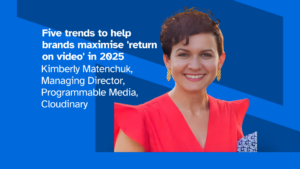Amy Kean, founder of Six Things Impossible and lead facilitator at Practice Makes UnPerfect
I hired a confidence coach once. It cost a lot of money, but desperate times call for desperate measures: I was working in Asia reporting into an insecure and inadequate boss who lashed out and undermined instead of working on his own professional development.
I’d wager about 70% of people reading this have been in exactly the same situation. It’s not easy to talk about, because we’ve been programmed to believe that if other people treat us badly it makes us weak. Somehow, lesser. The claustrophobic dynamics of a bad employer/employee relationship can impact your brain, your body (stress is an illness with physical side effects) and your long-term sense of self. So as a precautionary measure, I invested in a confidence coach to make sure I didn’t break.
The coaching was an interesting experience. I got hypnotised! We talked about the little voices in our heads – The Chimp – and how one can only control one’s own reaction to things, so to stop trying to change others. In one session, my confidence coach delivered an immortal line I’ll never forget: “Some people… will always be arseholes. Deal with it.”
I dealt with it. When my confidence was sufficiently rebuilt I found another job, and left. Handing it my notice felt like a cool shower on a hot day. A release! A revival! The ROI of that financial decision, and the allocation of my own personal funds, was exceptional.
A number of my learnings and life experiences have been channeled into Practice Makes UnPerfect: a course designed to help people finesse their public voices and be themselves more. Like you, but extra you. You squared!
So all the bad stuff: the dents on my confidence, the shitty unsolicited feedback, the fear of putting myself out there, the social media trolls, my own relationship with my nerves (which I’ve learned will always exist) have been put to good use. For 2 hours a week for 6 weeks, we practice public speaking, writing, podcasting, sitting on panels… we even practice fucking up… so that participants find out how it feels, and that things are rarely as bad as you think they’ll be.
Practice Makes UnPerfect has been described by alumni as “transformative” and “life-changing” and “essential.” (Without any prompting from me, I promise!) The course is mostly for women, and an inevitable, extremely pleasant side effect is that it boosts their confidence. PMU increases their desire to get out there and start speaking. Shouting! And that, for me, is an invaluable outcome.
However, I’m often asked to put a value on it. I talk to many, many companies about Practice Makes UnPerfect because it’s unique, and a number of business leaders are interested in ‘empowering’ (hate that word) women. So I’ll run through the process and benefits and sometimes I’ll be asked: what’s the business case for this?
Hang on. What’s… what’s the business case for investing your staff and boosting their confidence? The first time I heard it, this felt like a strange, clinical question, at odds with my heart and soul. Dramatic? Very. But I thought we’d moved past those conversations now: conversations about whether your staff should be happy, fulfilled, challenged, and rewarded.
To some of these companies I could respond with: what’s the business case for blowing £3k on a client lunch, or £30k on boozy trip to Cannes? One thing we’ve realised over the last 12 months is that these radical social occasions aren’t the only way to keep your clients engaged. Doing the work well is also a massive plus.
But from a business case perspective, there’s a few ways you can benefit from more confident women. They’re happier at work (presenteeism costs the UK economy £73 billion per year); they’re amazing spokespeople for your company (which can be calculated via a PR metric like AVE); they’re better storytellers and communicators which results in stronger client relationships; and they stay. They stay at your company because you’ve demonstrated that you care about their development.
Wouldn’t you love to be able to say to future employees: “Come for the job title and salary, stay for the ongoing investment we make into the self-esteem of our staff.” But.. not every company can say this. Can you?
According to a 2020 research report from &us, almost a fifth of people say the bravest decision they’ve made at work is to leave. After I spent months with a confidence coach, that was my bravest decision, too.
To retain your female employees; give them the mic, space to speak, develop their opinions, to help them practice pushing the whole industry forward, is a pretty solid company perk, if you ask me. Delivering a lifetime’s supply of confidence isn’t just a ‘business case’, it’s a healthy dose of humanity, too.









